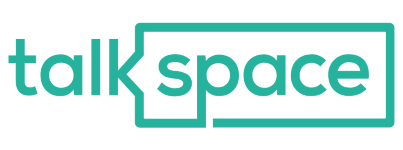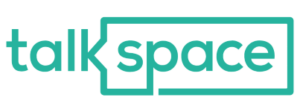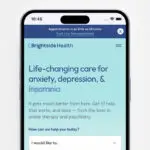Table of Contents
These products & services are researched and tested by HelpGuide’s independent consumer reviews partner. When you buy through the links, we earn a commission.
- We researched over 70 online therapy platforms, including 22 that take insurance, and signed up for and tested 14 of the most popular platforms.
- We surveyed 1,200 online therapy users, held focus group interviews with users and therapists, and consulted with more than 60 mental health experts.
- Collectively, we’ve spent more than 7,500 hours researching online therapy.
Connecting with the right therapist is one of the most significant steps to improve your mental health. But if you rely on insurance to pay for therapy, finding an in-network mental health care provider can be challenging. It takes time to determine how much coverage your insurance plan offers, set up and attend your initial appointments, and find a trustworthy provider. The national average wait time to receive behavioral health services is 48 days, which means many people wait too long to get the help they need.
Online therapy is becoming increasingly popular for finding affordable, quality mental health care with easy scheduling and shorter wait times. Today, online therapy platforms are partnering with health insurance companies—including large carriers like Aetna, Cigna, and BlueCross BlueShield—to provide talk therapy and psychiatry for the cost of your copayment, or copay, which can be as low as $20 or less.
To help people with insurance find quality in-network providers, the Handbook Team researched 70 online therapy sites and found 22 platforms taking insurance. We evaluated each site according to several criteria—including appointment availability, overall cost, and ease of scheduling—to narrow our list to the top five online therapy platforms that take insurance.
Our best overall online therapy that takes insurance pick
Talkspace is our top pick for the best online therapy that takes insurance. In our October 2023 survey of online therapy users, Talkspace received high ratings, with users citing its detailed therapist profiles and messaging features. Talkspace users with insurance have an average copay of just $30 per session.
Which online therapy platform that takes insurance is right for you?
Choosing the right online therapy platform will depend on your insurance and the care you need. Our top five online therapy platforms for those using insurance work with several large health insurance carriers, including Aetna, BlueCross BlueShield, Cigna, and Medicare. We know the language of insurance policies can be ambiguous and confusing, so we prioritized platforms that either check coverage for you or make it easy to check coverage on your own.
Here are our top online therapy platforms with large directories and low wait times:
- Best overall: Talkspace
- Best for psychiatry and medication management: Brightside
- Best for comprehensive care: Zocdoc
For specialty mental health care, we recommend these online therapy platforms that take insurance:
- Best for families: Thriveworks
- Best specialty care directory: MDLIVE
Why HelpGuide cares about access to mental health care






With one in five Americans living with mental illness, access to quality mental health care is essential. Still, less than half of U.S. adults with mental illness received treatment in 2021.
The Handbook team believes everyone should have access to mental health care when needed. Access includes:
- Being able to afford or find adequate coverage for mental health care.
- Being able to speak to a mental health professional as soon as you want.
- Being able to connect with a mental health professional who provides a safe environment where healing can occur.
From our focus group
“I’m not a rich man…and these therapy sessions are like $200 to $300 a piece if you don’t have insurance of any kind. I mean, that would add up over time. It’s like a thousand dollars a month to go to therapy. Without insurance, you’d have to be rich.”
The Mental Health Parity and Addiction Equity Act (MHPAEA) of 2008 mandates that health insurance companies treat mental health or substance abuse disorders the same as medical or surgical needs when it comes to benefits and coverage. The act makes therapy more accessible for many Americans.
Still, having health insurance is not a guarantee that a person with mental health challenges will receive timely and affordable care. Long wait times to see in-network providers can be daunting, and if you’re experiencing a mental health issue, you may not have the time or energy to wade through an insurance policy’s fine print to find out what kind of coverage you have.
We can’t talk about the mental health landscape without acknowledging our current economic climate. Online therapy platforms can offer a lifeline for those impacted by economic instability or financial concerns.
Erika T. Kendrick, Licensed Professional Counselor at Erika T. Kendrick, LLC in Montclair, NJ
By expanding the geographic area of in-network providers, online therapy networks can greatly reduce wait times. Also, many online therapy platforms prioritize cost and coverage transparency, making it easy to find out before you schedule whether or not your session will be covered by insurance and how much you’ll have to pay out-of-pocket, if anything.
In our 2023 survey of 600 online therapy users, 55 percent said that online therapy was more effective for them in achieving their specific mental health needs than in-person therapy. Of the 600 respondents, 48.67 percent used insurance to pay for their online therapy sessions. The majority of respondents waited less than two weeks to see a provider.
Our Handbook team has spent more than 7,500 hours researching, testing, and evaluating online therapy platforms. We’ve made phone calls, tested onboarding processes, and read the fine print. As a result of that research, this review is aimed at helping you find the best possible in-network provider to meet your mental health needs.
In a mental health emergency:
Online therapy may not be the best resource to help you in a mental health crisis. If you or someone you know is a danger to themselves or others, they need emergency care and cannot wait for an online therapist’s response.
Don’t wait. Find immediate help by:
- Calling or texting 988 for the Suicide & Crisis Lifeline.
- Chatting online at 988lifeline.org.
- Calling the Substance Abuse and Mental Health Services (SAMHSA)’s Helpline at 800-662-4357 or texting your zip code to 435748.
The options above will connect you with trained professionals who can provide crisis support.
Compare the best online therapy platforms that take insurance in 2024
| Platform | Mental Health Services | Ways to Connect | Insurance Accepted | Learn More |
|---|---|---|---|---|
| Individual therapy; Couples therapy; Teen therapy; Psychiatry | Messaging; Text, audio, or video sessions | Aetna, BlueCross BlueShield, Cigna, Gatorcare, Optum, Premera, and more | Visit Site | |
| Individual therapy for adults; Psychiatry | Messaging; Video sessions | Aetna, Allegiance, Anthem CA, Blue Cross Blue Shield of Montana, Blue Cross Blue Shield of Texas, Cigna/Evernorth, Optum/United Healthcare, PEHP, Medicare, and more | Visit Site | |
| Individual therapy for children, teens, and adults; Couples therapy; Psychiatry | Audio or video sessions | Aetna, Ambetter, Anthem BlueCross BlueShield, Cigna, Humana, Medicare, and more. | Visit Site | |
| Individual therapy for children, teens, and adults; Family therapy; Psychiatry | Messaging; Text, audio, or video sessions | Aetna, Anthem, BlueCross Blue Shield, Cigna, Humana, Optum, and more. | Visit Site | |
| Individual therapy for adults and children 10 years and older; Psychiatry | Video and audio sessions; Live chat for deaf and hard-of-hearing people | Aetna, Cigna, BlueCross BlueShield, Humana, Optima, and more. | Visit Site |
Best online therapy that takes insurance reviews
Handbook Tip 1
Many of the online platforms we recommend take on the task of checking your coverage and determining how much you’ll have to pay for therapy. Still, we recommend understanding the following insurance terms:
- Copay: Short for copayment, a copay is the fixed amount you pay for a covered health care service, usually at the time of service.
- Coinsurance: Your share of costs for a covered health care visit, calculated as a percentage (for example, you might pay 20 percent, and your plan pays 80 percent).
- Deductible: The amount you must pay towards covered health care services before your health insurance plan begins to cover payments.
If possible, call your insurance provider and ask them to define these terms for your specific policy. Here are some questions to help guide your conversation:
- What are my copayment and coinsurance amounts for mental health care?
- What is my copay for talk therapy sessions?
- What is my copay for psychiatry sessions?
- What is my deductible for in-network mental health care? How much of my deductible has already been met?
Other brands to consider
We tested several platforms to find the best online therapy that takes insurance. These platforms didn’t make our top five, but they may work well for your needs.
Charlie Health
Charlie Health provides personalized mental health care for teens and young adults. Their primary offering is intensive outpatient care, intended for those who need more than weekly support from a therapist.
Clinical mental health providers at Charlie Health use art and music therapy, drama therapy, cognitive behavioral therapy, and other evidence-based approaches. We like that Charlie Health accepts many large insurance carriers, including Medicaid.
Headway
Like Zocdoc and MDLIVE, Headway is an online service connecting therapy seekers with mental health care providers who accept their insurance. Their therapists provide talk therapy, psychiatry, and medication management for adults and children ages six and older. All providers on this platform accept insurance.
While our testers had success finding providers on Headway, they found it challenging to contact the platform’s customer support.
Monument
Monument is an online therapy platform specifically for people who want to quit or cut back on drinking. Their medication-assisted therapy program includes talk therapy, management of medications used to treat alcohol use disorder, and moderated support groups. They also offer a community support forum.
Monument accepts Aetna, Cigna, Medicare, and other insurance plans. Their insurance verification specialists will help you determine your coverage.
What you need to know about our online therapy research and testing
Here are the five things you need to know about online therapy that takes insurance:
- Talkspace is our top pick for the best online therapy platform that takes insurance.
- Other best online therapy platforms: Brightside, Zocdoc, Thriveworks, and MDLIVE.
- Online therapy platforms that take insurance can provide therapy for the cost of your copay, which can be as low as $0.
- Online therapy platforms typically offer 30-60 minute video sessions. Some platforms offer audio sessions and unlimited messaging.
- There are ways to safeguard your privacy and data while receiving online therapy.
Our testing experience
The Handbook team researched over 70 online therapy platforms, directories, and networks. We identified the 22 platforms that take insurance from major insurance carriers and tested several for ourselves. Here’s what we did with each online therapy platform we tested:
Our testers signed up for platforms to test the onboarding process, including investigating insurance coverage options. They then attended online therapy sessions for at least four weeks. Each tester logged their experience in a diary and participated in a testing summit to collectively share their findings.
We learned our testers appreciated the ability to choose providers from a directory. Most of the testers who were matched to their providers by the platform switched providers at least once due to scheduling conflicts, a lack of responsiveness from the therapist, or a lack of connection with the therapist. Testers were most enthusiastic about choosing a provider when they could filter for diverse needs, such as finding a provider with a similar gender or racial identity.
Our testers also liked having opportunities to utilize the platform beyond their typical therapy sessions of 30–60 minutes. They tried journaling, workshops, and classes provided by the platforms. Messaging was a popular feature among our testers, though they found that responsiveness varied quite a bit from provider to provider.
From our tester
“The ability to message the therapist through the app offers a convenient way to maintain ongoing communication, although the delay in the therapist’s response time can be frustrating.”
We rated each online therapy platform we tested and chose our top five platforms that take insurance to share with you in this review.
Data privacy on mental health platforms
We know how important it is for conversations between you and your therapist to remain private. In our 2023 survey of online therapy users, 77 percent of respondents said digital privacy on teletherapy platforms was extremely or very important. Here are two ways online therapy providers are required to protect user data:
- Health care providers must protect your personal health information (PHI) under the Health Insurance Portability and Accountability Act (HIPPA).
- Under the Health Information Technology for Economic and Clinical Health (HITECH) Act, online therapy platforms are prohibited from selling or using your PHI for marketing purposes without your permission.
Despite policies in place, some major online therapy platforms have faced data privacy concerns. You may still have questions about what’s covered by HIPPA on your teletherapy platforms. Here are links to read the privacy policies of the platforms we recommend:
Our final verdict
With some mental health copays as low as $20 or less per visit, using insurance can greatly reduce the cost of therapy. But, setting up and scheduling a session with an in-network therapist can take weeks or even months. We know not everyone can wait that long for mental health care. Online therapy platforms that take insurance can help expand your search for in-network providers, thus reducing wait times. Most of our testers could find an online therapy appointment in less than a week.
We recommend five online therapy platforms that take insurance: Talkspace, Brightside, Zocdoc, Thriveworks, and MDLIVE. Each platform offers therapy seekers the chance to find in-network talk therapy, psychiatry, and medication management.
Our testers appreciated the opportunity to select their provider. If selecting a provider is important to you, consider starting with an online directory service like Zocdoc, MDLIVE, or Thriveworks. Alternatively, Talkspace or Brightside will match you with a therapist and allow you to switch to a new one if the first match isn’t a great fit.
Frequently asked questions
Online therapy platforms that take insurance, like Talkspace and Brightside, will match you with an in-network therapist. Many online therapy platforms will help you check your coverage if you need help understanding your mental health benefits.
Yes, Medicaid typically covers mental health services, including medication management, inpatient therapy, and some outpatient therapy. Because Medicaid is mandated at the state level, Medicaid mental health care coverage will vary by state. Some online therapy platforms, including Zocdoc and Charlie Health, accept Medicaid.
Medicare Part B covers visits with most mental health care providers, including clinical social workers and psychiatrists. Several online therapy platforms accept Medicare patients, including Brightside and Zocdoc.
For many people, yes. In the Handbook team’s 2023 survey of 600 online therapy users, 55 percent said that online therapy was more effective in achieving their mental health goals than in-person therapy, and 44.5 percent said they noticed a benefit of online therapy within two to four weeks of their first session.
- National Council for Mental Wellbeing. (2022, January 21). Certified community Behavioral health clinics providing expanded access to mental health, substance use care during COVID-19 pandemic – National Council for Mental Wellbeing. Link
- Center for Disease Control. (2023, April 25). About mental health. Link
- National Institute of Mental Health. (n.d.). Mental illness. U.S. Department of Health and Human Services, National Institutes of Health. Link
- CMS.gov. (n.d.). The Mental Health Parity and Addiction Equity Act (MHPAEA). U.S. Centers for Medicare & Medicaid Service. Link
- CMS.gov. (n.d.). Glossary of Health Coverage and Medical Terms. [PDF]. U.S. Centers for Medicare & Medicaid Services. Link
- GovInfo. (1996, August 21). Public Law 104 – 191 – Health Insurance Portability and Accountability Act of 1996. Link
- Office for Civil Rights. (2021, June 28). HITECH Act Enforcement Interim Final Rule. U.S. Department of Health and Human Services. Link

















